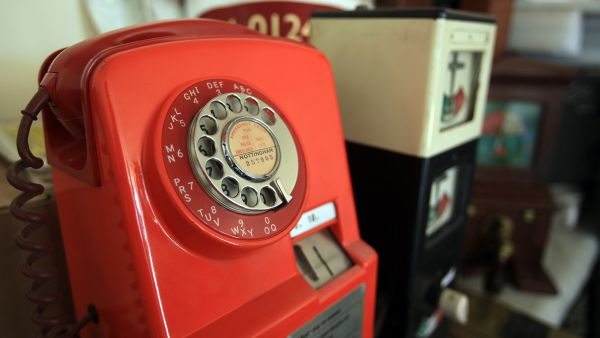There was a time when I didn't own a smartphone and had to stand in a queue at a local telecom office to make a call home. Just after Friday prayers we would queue up at this prefabricated office in downtown Jeddah, while a second line of people holding audio tapes in envelopes would also snake around the cabin.
The week before, expatriates who were so far away from home, would sit late into the night taping the highlights of their wonderful life and send audio love notes to their brand new wives who they had to leave behind, or to the lonesome girlfriend pining for her man.
The call rates were also cheaper on Fridays so the rush of people was more at this cabin. Trying to get a landline at our flat was out of the question as the paperwork was enormous and nobody was ready to take on the responsibility of monitoring the phone calls being made as there was a crowd of people walking in and out of our flat at all times.
As I stood in the queue I could overhear that the most popular question from across the Red Sea was, "When are you coming home?"
Good old days
The trouble most of us had to go through just to make a call, now that I come to think of it, wasn't such a big deal, after a colleague reminded me of the hard times back in our hometown in India. To place a call to Bombay as it was called back then, or even to a town in the rural boondocks, you had to make what was known as a ‘trunk call'.
I have no idea why it was called a ‘trunk call' and every time I booked a call I was somehow reminded of a circus and elephants.
The phone, a shiny black instrument with no dial face, would be placed on a broken down stool and guarded by a surly government-department staffer. After standing in a line and giving all the personal details of both myself and the person I was calling, I would then stand in another queue with a ticket and wait for the nice man to let me speak.
I think it was called a ‘trunk call' because you usually had to shout a lot. "Hello, hello, can you hear me? Is that you? Yes, this is me? Hello, no, nobody has died, hello, everyone is fine." [In those good, old days people dreaded two things, a telegram and a ‘trunk call', as it was usually bad news.]
Suddenly, the call would disconnect. "Next!" the surly staffer would shout and no amount of pleading would help. "You should learn to speak faster and not go hello, hello, all the time," he would say. Sometimes fist fights would erupt as a ‘trunk call' was not exactly cheap.
The same principle applied to sending a telegram and it went to the receiver at the other end looking like a message a serial killer sends to a newspaper mocking the police and the law.
The words would be cut up individually and pasted on a paper and you had to pay for each word.
English is the language of communication in India, but we also have dozens of local languages, so sometimes a telegram reads like a secret message: ‘Grand uncle left us, property divided Saturday'. I think it was here that I learned to say more in fewer words and my career was chosen for me.
As time passed, things became a little easier for us expatriates as small call booths sprung up everywhere and you could make a call while ordering a leg of chicken tikka, but the message remained the same: "Yes, yes, I am trying to get you here, I am really trying."
By Mahmood Saberi








